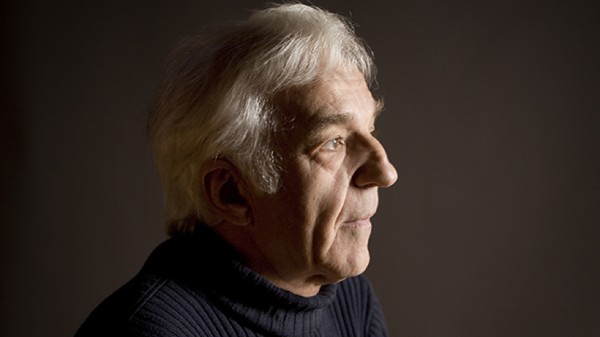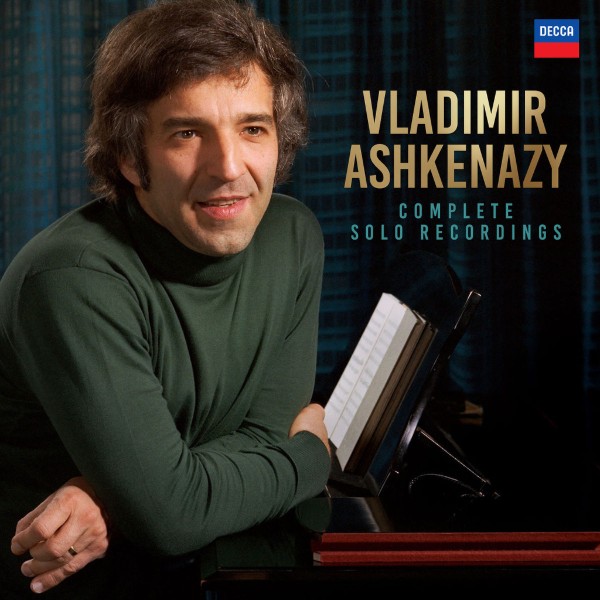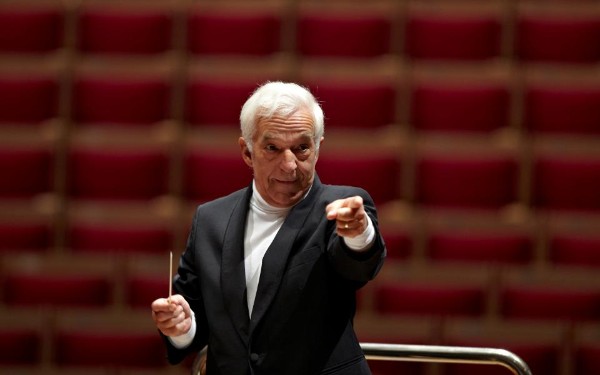Vladimir Ashkenazy, born in Gorky, Soviet Union, on 6 July 1937, stands as one of the most revered pianists and conductors of his era. A child prodigy, he rose to international fame through standout performances at the Chopin Competition in 1955 and the Tchaikovsky Competition in 1962, showcasing a remarkable blend of technical skill and emotional depth.
Seeking artistic and personal freedom, Ashkenazy departed from the Soviet Union in 1963 to explore a broader repertoire and to deepen his interpretations. His performances took on a fresh vitality, and each concert became a testament to his ability to balance technical perfection with emotional honesty.

Vladimir Ashkenazy
As his career evolved, Ashkenazy’s ambitions extended beyond the piano bench. He began conducting in the 1970s, bringing the same meticulous attention to detail and expressive insight to his work with orchestras. His recording career spans well over 60 years and includes landmark cycles of Beethoven, Rachmaninoff, and Prokofiev.
To commemorate his birthday on 6 July, let’s feature some of his most iconic piano performances and recordings.
Vladimir Ashkenazy plays Chopin: Etude, Op. 10 No. 1
Fire and Soul
Vladimir Ashkenazy’s recording of the 3rd Piano Concerto by Sergei Rachmaninoff stands as a pinnacle of his pianistic legacy. They are veritable showcases of technical ferocity and emotional engagement. From the opening bars, Ashkenazy imbues the concerto’s lyrical theme with a haunting clarity, his fingers tracing the delicate melody with a singing tone that feels almost vocal in its expressiveness.
A critic writes, “Ashkenazy’s recording, with its delicate rubato and warm tone evoking a poignant sense of yearning, is a masterclass of lyrical sensitivity,” and a “definitive rendition.”
Critics and listeners alike have hailed his interpretation for its balance, fire, and introspection, capturing the concerto’s Russian soul with an authenticity born of Ashkenazy’s own heritage. It is a testament to Ashkenazy’s gift for transforming technical challenges into moments of profound musical storytelling.
Sergei Rachmaninoff: Piano Concerto No. 3 in D minor, Op. 30 (Vladimir Ashkenazy, piano; Royal Concertgebouw Orchestra; Bernard Haitink, cond.)

Vladimir Ashkenazy – The Complete Solo Recordings
Clarity and Passion
Vladimir Ashkenazy recorded the monumental cycle of Beethoven’s 32 Piano Sonatas for Decca between the 1970s and 1980s. Marrying intellectual rigour with fiery passion and expressive freedom makes this set a definite touchstone for Beethoven enthusiasts.
From the lyrical intimacy of the “Moonlight” Sonata to the stormy intensity of the “Appassionata,” Ashkenazy’s interpretation reveals a profound understanding of Beethoven’s evolving style. His approach is marked by sparkling articulation and a keen sense of structure, allowing the listener to trace the composer’s revolutionary arc across the cycle.
A Gramophone review praised the cycle, noting, “Ashkenazy’s Beethoven combines a rare clarity with a fiery commitment, making each sonata feel like a fresh discovery.” While some reviews suggest that Ashkenazy’s restraint felt overly cautious, the cycle is nevertheless celebrated for its versatility. “This Beethoven cycle is a journey of discovery,” wrote a publication, “offering a rare blend of intellect and heart that invites repeated listening.”
Ludwig van Beethoven: Piano Sonata No. 23, Op. 57 “Appassionata” (Vladimir Ashkenazy, piano)

Vladimir Ashkenazy © Keith Saunders
Wit and Power
Vladimir Ashkenazy’s 1975 recording of Prokofiev’s Piano Concerto No. 3 with the London Symphony Orchestra, conducted by André Previn for Decca, is an electrifying testament to his affinity for the Russian repertoire.
As a 1975 review writes, “Ashkenazy’s Prokofiev is a revelation, combining razor-sharp clarity with a mischievous spark that perfectly suits the composer’s spirit.” His sensitive phrasing unveils the dreamlike quality of the lyrical “Andantino,” while his bold articulation and propulsive energy drive the thrilling “Finale.”
While some critics suggest that Ashkenazy’s approach occasionally leaned toward polish over raw edge compared to more visceral interpreters, the consensus celebrates his ability to illuminate the concerto’s multifaceted character.
Sergei Prokofiev: Piano Concerto No. 3 in C Major, Op. 26 (Vladimir Ashkenazy, piano; London Symphony Orchestra; André Previn, cond.)
Elegance and Heart
Vladimir Ashkenazy’s recordings of the Mozart Piano Concertos are luminous showcases for his mastery of the Classical repertoire. Blending elegance and profound sensitivity, Ashkenazy’s interpretation is marked by effortlessly natural phrasing that is meticulously shaped.
His interpretation captures the subtle dynamic shifts in Mozart’s harmonic ingenuity, while his interplay with the orchestra is almost chamber-like. A Gramophone review from the era praised the performance, noting, “Ashkenazy’s Mozart is a model of clarity and grace, revealing the concerto’s emotional depth with understated eloquence.”
Vladimir Ashkenazy’s artistry is a rare alchemy of technical brilliance, emotional depth, and interpretive insight, cementing his place as one of the 20th century’s most revered pianists. His recordings reveal a musician who approaches each score with a curious mind and a generous heart. Ashkenazy’s legacy endures not just in his vast discography but in the countless listeners who, through his playing, discovered the transformative power of music.
For more of the best in classical music, sign up for our E-Newsletter
